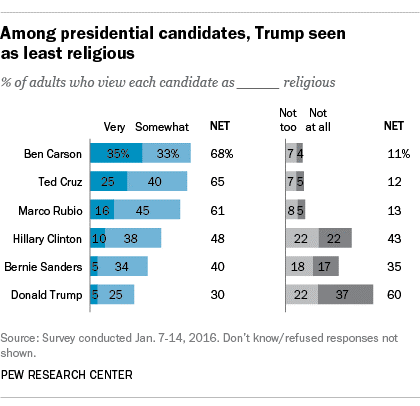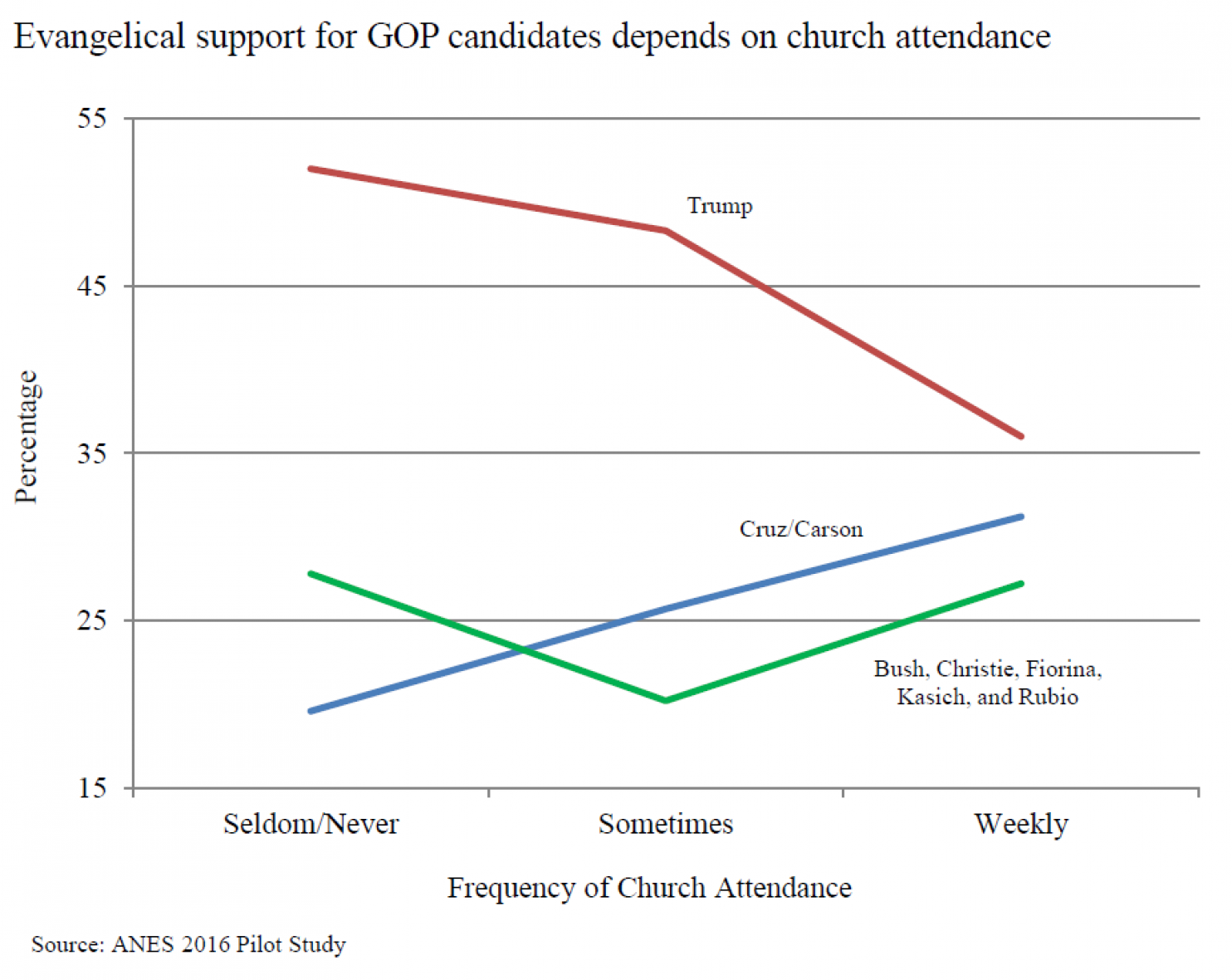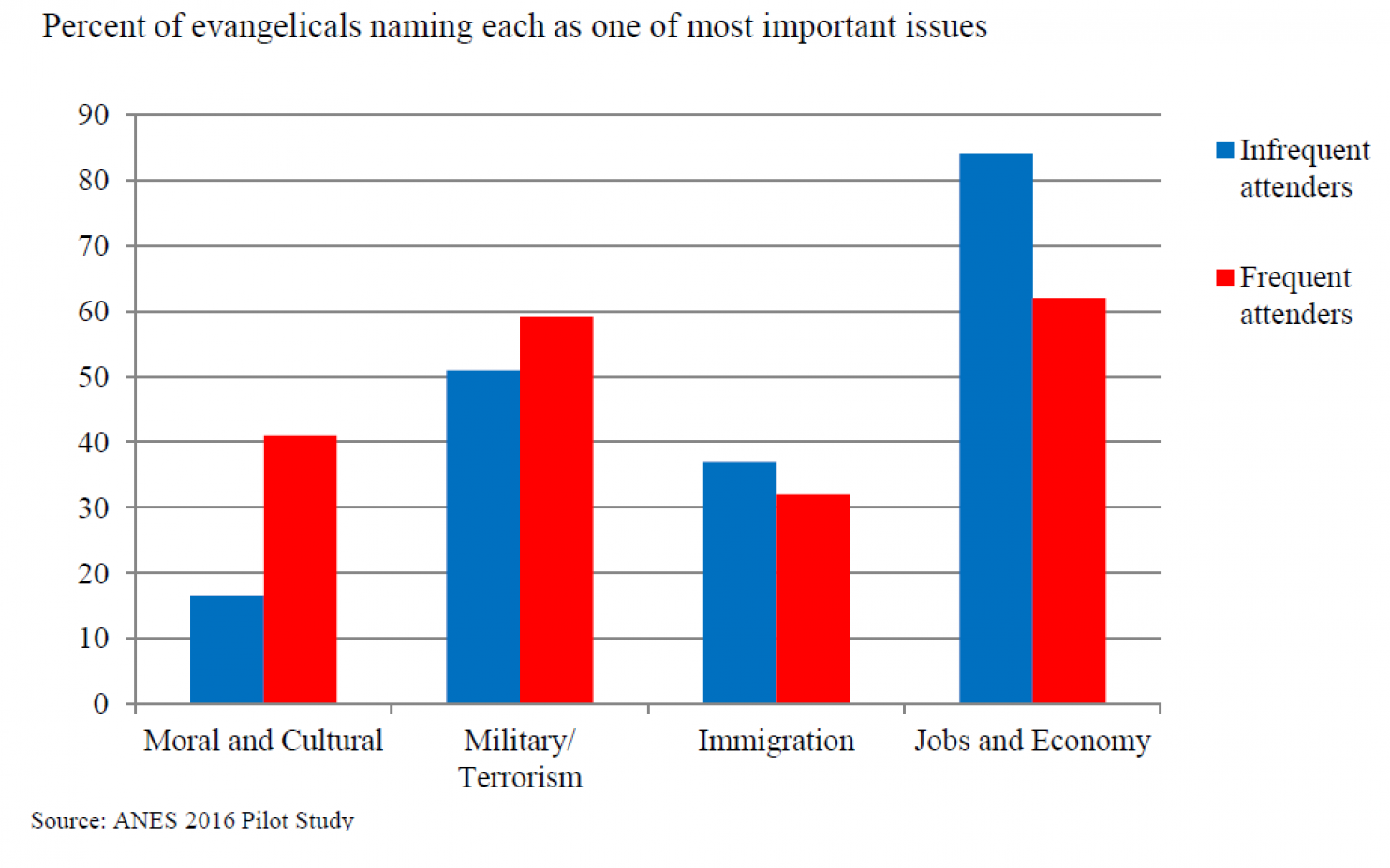The Mysterious Case of the Missing Evangelicals
Evangelical voters are a monolithic group, right? Certainly, the word “evangelical” conjures up a very specific image in our mind – perhaps a WASP who regularly attends church and strongly objects to homosexuality and abortion. Ever since the 1980s, when Ronald Reagan positioned himself as a champion of Christianity, faith-based voters have dominated the GOP. Around this same time, groups such as Jerry Falwell’s Moral Majority arose, mobilizing millions of evangelicals into political action. More recently, it seemed that religious conservatives had once again found their voice in the Tea Party. In 2010, the Tea Partiers administered a stunning defeat to the Obama administration during the midterm elections, wiping out the majority in the House of Representatives that Democrats had maintained for half a century. Obama himself referred to the election as a “shellacking.” Although these religious conservatives were unable to unseat Obama in 2012, they turned out in sufficient numbers in 2014 to take the Senate as well as the House. Meanwhile, rising stars like Ted Cruz had made their mark, pushing the national party’s rhetoric further and further to the right.[1] The future looked bright for religious Republicans.
Now fast forward to the 2016 election. Enter Donald Trump. The current Republican frontrunner is neither the classic “establishment” frontrunner (who emphasizes tax cuts and small government) nor a prototypical Religious Right candidate (who focuses on social issues such as abortion, homosexuality, etc.) Instead, he is a man with a strange blend of nationalism and swagger, who definitely does not hew to the conservative orthodoxy. A former pro-choicer, Trump was a registered Democrat who in previous years actually supported Hillary Clinton.[2] Ordinarily, this sort of background would disqualify anybody from winning evangelical support. But of course, this is no ordinary election, and Trump is no ordinary candidate. Let’s take a look at the data to see what’s going on.
These are the results of a Pew Survey from this January. A few results jump out at us. Firstly, Trump is far and away the most likely to be seen as “Not at all” religious, which is frankly mind-boggling when you remember he is the GOP frontrunner. Now look at the two people above him – Bernie Sanders and Hillary Clinton. That’s right, the two Democratic candidates are actually considered to be more religious than the likely Republican nominee.[3]
Given this information, how do evangelicals actually feel about Trump? Well for starters, talking about “evangelicals” as one large group isn’t particularly helpful. Perhaps differentiating among levels of religiosity would be a good way to sort evangelicals into groups. Frequency of churchgoing is a decent stand-in for religious intensity, and the data show some fascinating results.[4]
“Ah-hah!” you exclaim. “Just look at the gap between Trump’s supporters and the Cruz/Carson people!” And indeed, there is a rather stunning gulf between the church attendance of Trump supporters and Tea Partiers. Among evangelicals who either never or seldom attend church, Trump’s support is over 50%. This plunges to about 35% support among those who fill the pews every Sunday. Clearly, even though all of these people self-identify as “evangelicals,” religious intensity is not particularly evident in Trump’s demographic. The larger point here is that it is misleading to think of evangelicals as a single voting bloc. Rather it is more useful to subdivide them in terms of religiosity, and then measure their voting preferences
In addition to religious intensity, infrequent churchgoers are also motivated by different issues – issues that aren’t associated with the classic “Christian Right” stereotype. Consider this data:
Among infrequent attenders, “Moral and Cultural Issues” (a.k.a., the bastion of the Christian Right) are not particularly important. Indeed, their focus is on economic growth and jobs, far more so than their highly religious counterparts.
I believe that Donald Trump has shattered the paradigm of the “evangelical monolith.” Once upon a time, evangelicals were largely perceived to be a unitary voting bloc, but Trump has revealed the cracks in the façade. Trump’s message of economic growth and populism has captured the less religious wing of evangelical voters, while the more highly religious flock to Cruz’s message of social conservatism and open display of Christianity. As Marco Rubio might say, “We have to dispel this notion that all evangelicals vote uniformly.”
[1] Salam, Reihan. “Ted Cruz Is Stuck in the 1980s.” Slate Magazine.
[2] Gass, Nick. “Trump has spent years courting Hillary and other Dems.” Politico.
[3] Remember, we’re talking about the party of Mike Huckabee, who once wrote a book called God, Guns, Grits, and Gravy. You can’t make this stuff up.
[4] Perl, P. and Olson, D. V.A. (2000), Religious Market Share and Intensity of Church Involvement in Five Denominations. Journal for the Scientific Study of Religion, 39: 12–31. doi: 10.1111/0021-8294.00002
Sources:
“Faith and the 2016 Campaign.” Pew Research Center. Pew: 27 Jan, 2016. Web. H http://www.pewforum.org/2016/01/27/faith-and-the-2016-campaign/
Gass, Nick. “Trump has spent years courting Hillary and other Dems.” Politico. Politico: 16 June 2016. Web. http://www.politico.com/story/2015/06/donald-trump-donations-democrats-hillary-clinton-119071
Layman, Geoffrey. “Where is Trump’s evangelical base? Not in church.” Washington Post. Monkey Cage: 29 March 2016. Web. https://www.washingtonpost.com/news/monkey-cage/wp/2016/03/29/where-is-trumps-evangelical-base-not-in-church/
Perl, P. and Olson, D. V.A. (2000), Religious Market Share and Intensity of Church Involvement in Five Denominations. Journal for the Scientific Study of Religion, 39: 12–31. D Doi: 10.1111/0021-8294.00002
Salam, Reihan. “Ted Cruz Is Stuck in the 1980s.” Slate Magazine. Slate: 4 March 2016. Web. http://www.slate.com/articles/news_and_politics/politics/2016/03/ted_cruz_sounds_like_ronald_reagan_he_d_be_more_popular_with_voters_if_he.html
Zylstra, Sarah Eekhoff. “As Falwell Favors Trump, Pew Says Most Americans Still Want a R Religious President.” Christianity Today. Gleanings: 27 Jan, 2016. Web. http://www.christianitytoday.com/gleanings/2016/january/religious-president-pew-faith-2016-campaign-falwell-trump.html


